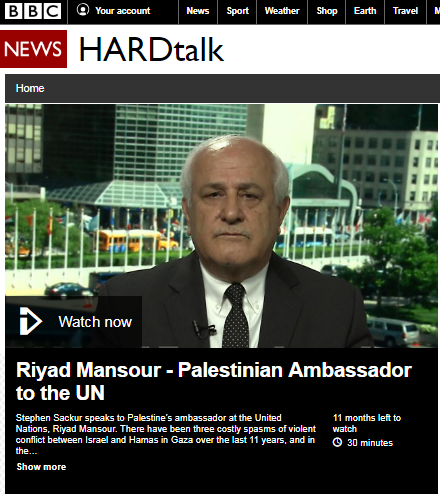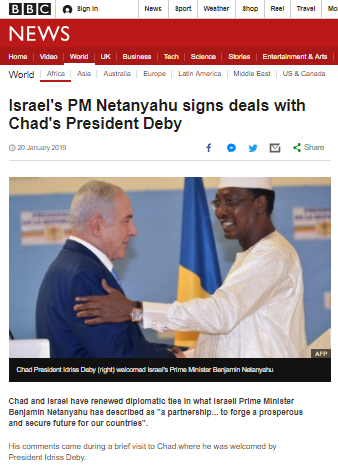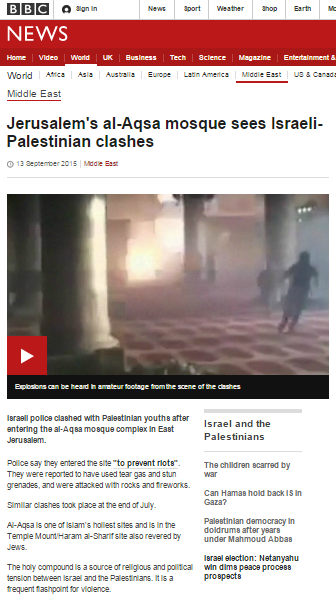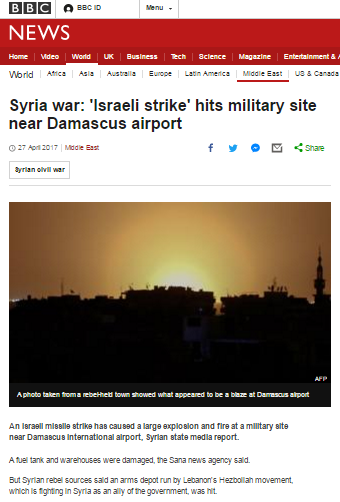Last month viewers of the BBC programme ‘Hardtalk’ heard from the PLO’s envoy to the UN that the UN Secretary General was due to present a report.
Riyad Mansour: “And then we went to the General Assembly and we have a resolution that was adopted by 120 countries versus 8 calling for providing international protection for the civilian population in the occupied Palestinian territory and the Secretary General was asked to submit a report with recommendations and suggestions to provide protection for the civilian population – the Palestinian civilian population – including international protection mechanism and he has until the 13th of next month to submit that report. We are engaging his teams with ideas and suggestions to fulfil such a demand for providing protection for the civilian population under Israeli occupation.”
BBC audiences were not told either at the time or in that ‘Hardtalk’ programme that the UN GA’s June 13thresolution titled “Protection of the Palestinian civilian population” was adopted:
“…following the Assembly’s rejection of a United States-sponsored amendment — by a vote of 78 against to 59 in favour, with 26 abstentions — which would have condemned Hamas for repeatedly firing rockets into Israel and inciting violence along the boundary fence. It would have demanded that Hamas cease all violent activity and expressed grave concern over the destruction of the Kerem Shalom crossing by actors in Gaza.”
On August 17th the UN Secretary General presented his report.
“Guterres outlined four options, but he did not make a specific recommendation. He noted that all options would need the cooperation of both parties, a sustained cessation of hostilities and additional resources to ensure they were viable. […]
Armed UN peacekeepers or armed forces from a group of like-minded states operating under a United Nations mandate could be deployed to offer physical protection, Guterres said. This option, however, would need a Security Council mandate and the United States, a close ally of Israel, would likely wield its veto.
A UN or non-UN civilian observer mission could be deployed “with a specific mandate to report on protection and well-being issues and provide local mediation,” Guterres said. This would also need a UN-mandate.
A third option could be expanding current UN programs and development and humanitarian aid to address the needs of Palestinian civilians more effectively and strengthen Palestinian institutions, he wrote.
The final option could be to send additional UN human rights, coordination and political officers to boost monitoring and reporting on the situation and increase the UN’s visibility, Guterres said.”
Ignoring the fact that the terrorist organisation that rules the Gaza Strip and initiated the violence that is the topic of the UN GA resolution that required his writing of this report has absolutely no intention of making peace with Israel, Guterres said:
“The best way to ensure the safety and protection of the Palestinian civilian population is still the negotiation of a comprehensive, just and final settlement of the Arab-Israeli conflict”
Curiously, BBC audiences have not seen any coverage of that report from the UN Secretary General – or the criticisms that followed. Writing at Ha’aretz, Lt. Col. Peter Lerner noted for example that:
“…the idea of a UN military or police force to deter or protect civilians is useless in the Palestinian arena due to the already highly politicized reality. Israel has learned that it cannot depend on international forces like UNIFIL and UNDOF for its security concerns.”
Obviously should any of Guterres’ proposals be translated into practical steps, BBC audiences will be lacking in the background information which would enable them to “engage fully” with that story.




